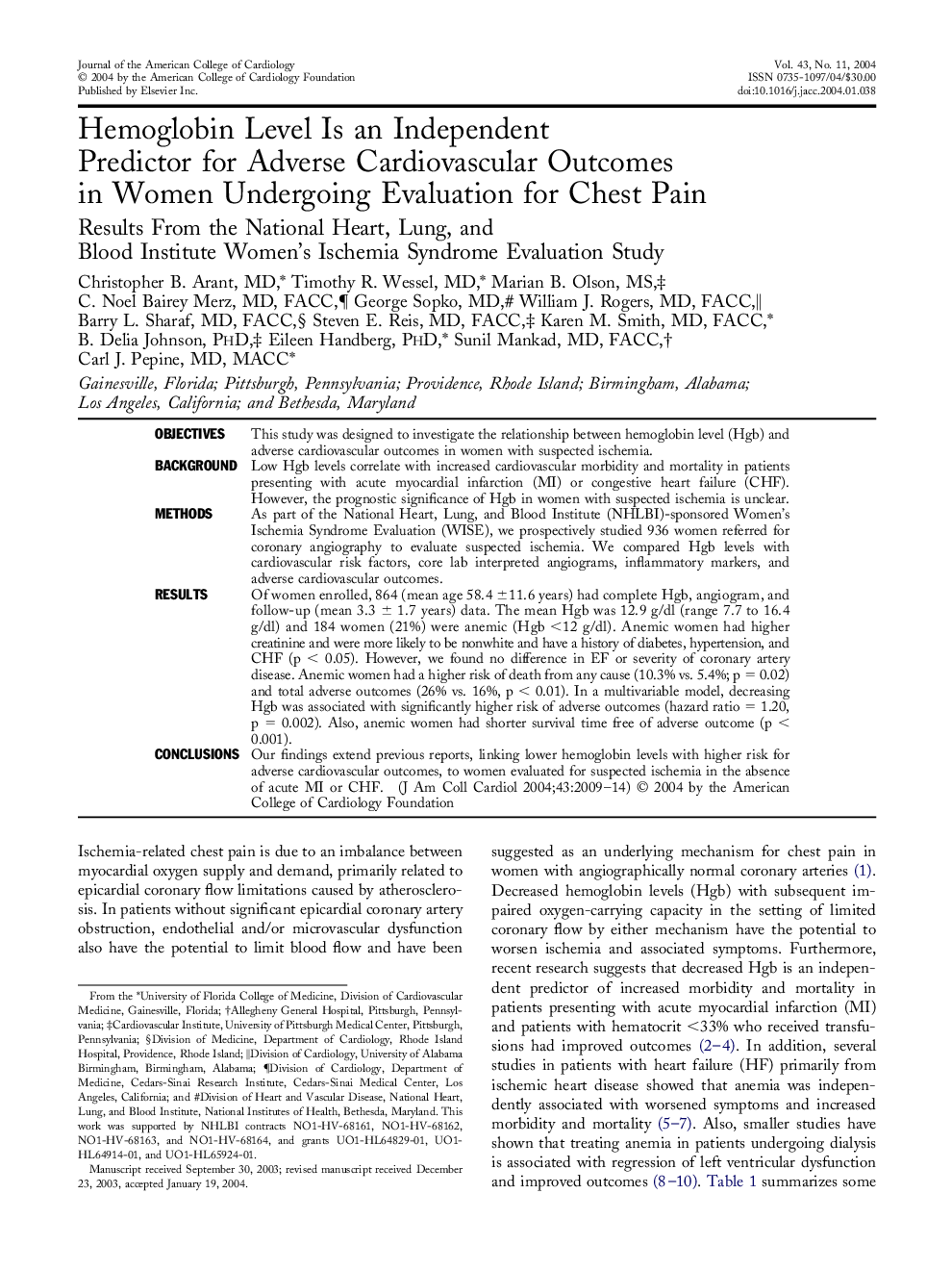| کد مقاله | کد نشریه | سال انتشار | مقاله انگلیسی | نسخه تمام متن |
|---|---|---|---|---|
| 2954751 | 1577569 | 2014 | 6 صفحه PDF | دانلود رایگان |
ObjectivesThis study was designed to investigate the relationship between hemoglobin level (Hgb) and adverse cardiovascular outcomes in women with suspected ischemia.BackgroundLow Hgb levels correlate with increased cardiovascular morbidity and mortality in patients presenting with acute myocardial infarction (MI) or congestive heart failure (CHF). However, the prognostic significance of Hgb in women with suspected ischemia is unclear.MethodsAs part of the National Heart, Lung, and Blood Institute (NHLBI)-sponsored Women's Ischemia Syndrome Evaluation (WISE), we prospectively studied 936 women referred for coronary angiography to evaluate suspected ischemia. We compared Hgb levels with cardiovascular risk factors, core lab interpreted angiograms, inflammatory markers, and adverse cardiovascular outcomes.ResultsOf women enrolled, 864 (mean age 58.4 ±11.6 years) had complete Hgb, angiogram, and follow-up (mean 3.3 ± 1.7 years) data. The mean Hgb was 12.9 g/dl (range 7.7 to 16.4 g/dl) and 184 women (21%) were anemic (Hgb <12 g/dl). Anemic women had higher creatinine and were more likely to be nonwhite and have a history of diabetes, hypertension, and CHF (p < 0.05). However, we found no difference in EF or severity of coronary artery disease. Anemic women had a higher risk of death from any cause (10.3% vs. 5.4%; p = 0.02) and total adverse outcomes (26% vs. 16%, p < 0.01). In a multivariable model, decreasing Hgb was associated with significantly higher risk of adverse outcomes (hazard ratio = 1.20, p = 0.002). Also, anemic women had shorter survival time free of adverse outcome (p < 0.001).ConclusionsOur findings extend previous reports, linking lower hemoglobin levels with higher risk for adverse cardiovascular outcomes, to women evaluated for suspected ischemia in the absence of acute MI or CHF.
Journal: Journal of the American College of Cardiology - Volume 43, Issue 11, 2 June 2004, Pages 2009–2014
